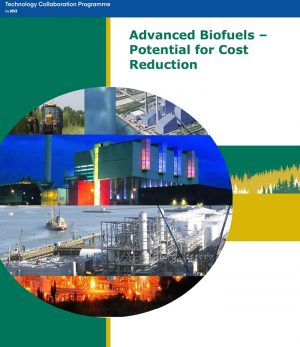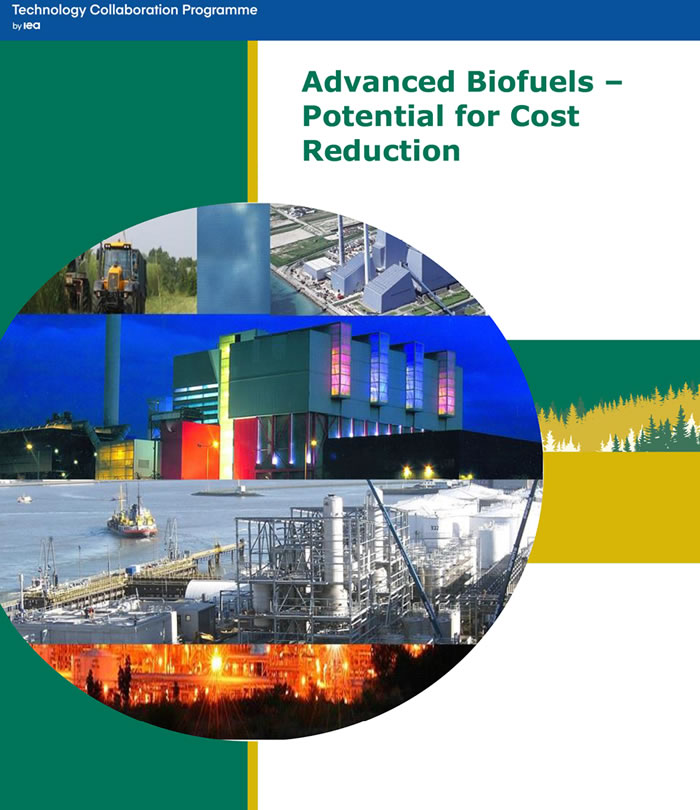IEA Bioenergy’s new report, “Advanced Biofuels – Potential for Cost Reduction,” acknowledges the gap between the cost of the advanced biofuels and current fuel prices, and explains how this gap can be reduced in the medium term through process improvements in designing, building and operating plants, financing costs reduction, and technology learning. “Policy support will continue to be needed to enable these technologies to mature either in terms of added value for low carbon fuels or carbon costs applied to fossil fuels,” according to the report, which was carried out by IEA with support from Germany, Netherlands and Sweden.
 To compare cost data and production capacities across a wide range of biofuels with different energy contents and bulk densities on a common basis (e.g., cellulosic ethanol, methanol, syngas from biomass gasification), the analysis shows production cost data in EUR/MWh of product, and investment costs in EUR/kW of biofuels production output capacity (1 EUR is calculated at $1.15 US). For each production route, costs are broken down into three main categories: contribution of capital costs to production costs; feedstock costs per unit of production; and other operating costs per unit of production.
To compare cost data and production capacities across a wide range of biofuels with different energy contents and bulk densities on a common basis (e.g., cellulosic ethanol, methanol, syngas from biomass gasification), the analysis shows production cost data in EUR/MWh of product, and investment costs in EUR/kW of biofuels production output capacity (1 EUR is calculated at $1.15 US). For each production route, costs are broken down into three main categories: contribution of capital costs to production costs; feedstock costs per unit of production; and other operating costs per unit of production.
As a default, the capital charges are calculated using a finance cost of 10% and a project lifetime of 15 years; cost calculations assume that plants can operate for 8,000 hours/year.
The costs of producing biofuels at a specific plant will be dependent on many local factors including the site costs and whether there is any appropriate infrastructure already in place. Feedstock costs will also depend on the availability and cost of local resources.
Biomethane generated via anaerobic digestion (AD) is one of the advanced biofuels analyzed. Assumptions used for AD facilities in Europe include: “Processing via AD is done in smaller capacity plants (typically between 1-20 MW) compared to other biofuel technologies. Plants that upgrade biogas to biomethane are usually at the upper end of the capacity scale with 5 to 20 MW product output. … The investment cost is on the order of 1,500 to 3,000 EUR/kW. The annual operating cost is around 10% to 15% of the investment cost, with the main elements relating to the heat required for the process and the electricity used both in the biogas plant and in upgrading and compression. The Operational Expenditure cost (OPEX) depends heavily on the scale; the choice of feedstock affects the value, or cost of disposal, of the digestate and has a strong influence on the overall economics. …. For the purpose of this work the contribution of feedstock to the final product cost is estimated to range between -13 EUR/MWh and 50 EUR/MWh.” Total contribution of costs (capital, O&M, feedstock) range from a low of 40 EUR/MWh to a high of 120 EUR/MWh.
February 25, 2020 | General










